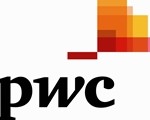 A series of seminars on Saudi Arabia’s convergence to International Financial Reporting Standards (IFRS) were organised by PwC in the Kingdom , and attended by more than 200 senior company executives. The seminars focused on the opportunities that the convergence should bring to the Kingdom of Saudi Arabia and those entities which will adopt IFRS in 2017 and 2018 in line with the requirements of the Saudi Organisation for Certified Public Accountants (“SOCPA”). The seminar also addressed the process that should be followed when adopting IFRS, along with the efforts required across a broad range of implications in respect of processes, accounting, finance effectiveness, systems, people and tax and Zakat.
A series of seminars on Saudi Arabia’s convergence to International Financial Reporting Standards (IFRS) were organised by PwC in the Kingdom , and attended by more than 200 senior company executives. The seminars focused on the opportunities that the convergence should bring to the Kingdom of Saudi Arabia and those entities which will adopt IFRS in 2017 and 2018 in line with the requirements of the Saudi Organisation for Certified Public Accountants (“SOCPA”). The seminar also addressed the process that should be followed when adopting IFRS, along with the efforts required across a broad range of implications in respect of processes, accounting, finance effectiveness, systems, people and tax and Zakat.
The Saudi Arabian Monetary Authority (SAMA) already requires banks and insurance companies in Saudi Arabia to report under IFRSs. SOCPA standards apply to all other companies, listed and unlisted and other entities irrespective of their size are required to use local GAAP as issued by SOCPA. SOCPA has approved an IFRS convergence plan by which listed entities other than banks and insurance companies would be required to report under SOCPA standards that will be IFRSs with some modifications. IFRSs as issued by the IASB would be modified in three possible ways: Adding more disclosure requirements; removing optional treatments; and amending the requirements that contradict Shariah or local law.
The seminar demonstrated a three-phased approach for IFRS conversion: “Initial Diagnostic Phase” involving a detailed gap analysis which produces a roadmap for successful conversion, the “Conversion” Phase” which results in the production of the first IFRS financial statements, and the “Embedding Phase” to ensure that revised systems, processor, policies and behaviours are adopted to report efficiently under IFRS on an ongoing basis.
Gavin Steel, the IFRS conversion leader in PwC Middle East said: “The active participation of those attending the seminars demonstrated the keen interest of companies in playing a leading role in adopting IFRS in the Kingdom”. He also emphasised the importance of early planning and articulated the need of each entity to adopt a robust conversion approach to meet the deadlines set by SOCPA by indicating that “2017 may be some way away, but the reality is that an IFRS compliant balance sheet will be required for 31 December 2015 at the latest, and hence planning needs to start now”.
Mohammed Yaghmour, the Saudi Tax and Zakat leader of PwC also presented a session on the implications of IFRS adoption on tax and Zakat, indicating that: “the adoption of IFRS standards in the Kingdom will lead to tax and Zakat uncertainties, and entities will need to carefully assess the implications of any changes to their financial reporting to ensure they continue to comply with the tax and Zakat regulations in the Kingdom”.
The seminars held at different locations in the Kingdom is an initiative by PwC to help raise awareness of the implications and benefits of adopting IFRS in the Kingdom of Saudi Arabia as a result of SOCPA’s announcement during the course of last year that listed entities would be required to adopt IFRS by 2017 and all other entities would be required to adopt IFRS in 2018. Noting that, the seminars were held in Jeddah, Riyadh and Khobar during the month of March.
Whilst some see IFRS as one of the biggest revolutions in the accounting industry, often requiring a major change management effort, IFRS offers companies an opportunity to improve their business in several ways: The first one is the financial reporting systems and processes can be reshaped to provide management and stakeholders with reliable and understandable information. The second benefit is enhancing financial transparency with analysts, investors, regulators and other stakeholders, by improving the quality of reported results, financial position and other key performance indicators. The third benefit is the adoption of IFRS improves the acceptability of financial statements providing greater access to funding at improved rates, saving costs. Accordingly, the benefits are potentially far reaching and varied, and a robust plan to adopt IFRS is a key strategic consideration for most entities adopting IFRS and an opportunity to train staff, raise their awareness and improve their job satisfaction.
The IFRS transition plan is part of a project called ‘SOCPA Project for Transition to International Accounting & Auditing Standards’. The SOCPA formally commenced this project in 2012 and their stated goal for the project is to make a transition towards IFRSs after assuring their suitability to the Saudi environment through SOCPA’s independent standard-setting process.
